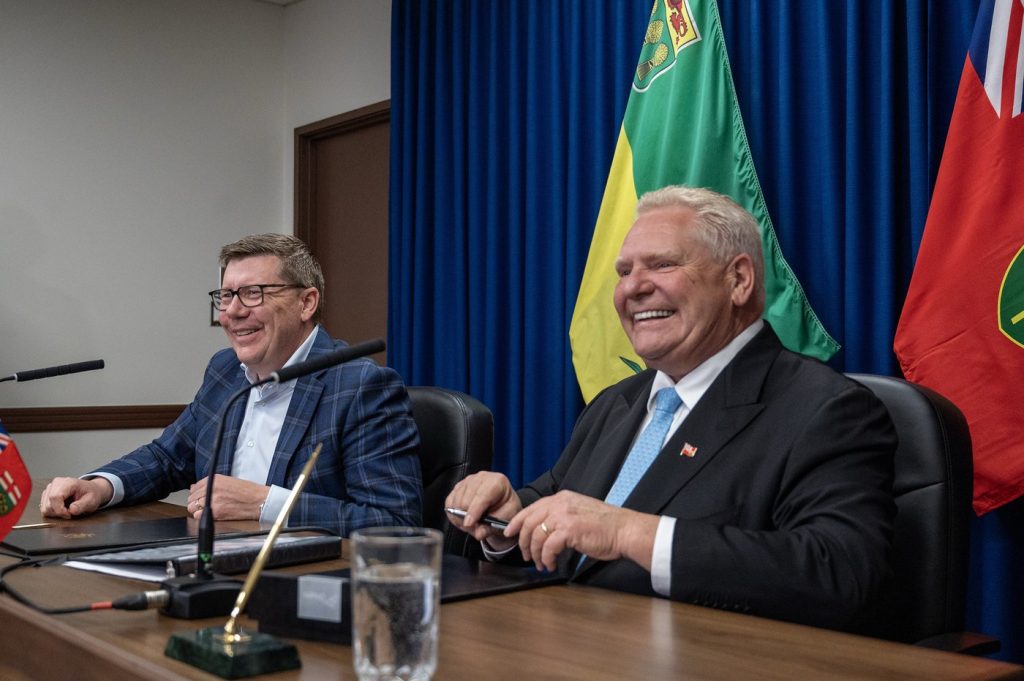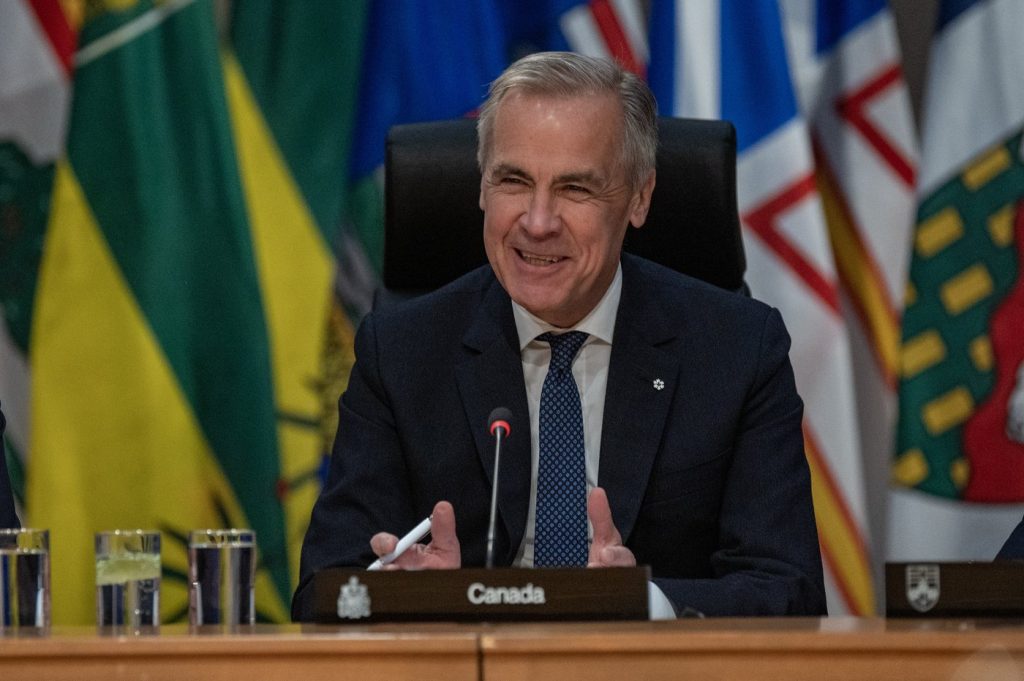On June 1, 2025, in Saskatoon, Alberta and Saskatchewan formally signed agreements with Ontario to eliminate trade barriers, paving the way for a stronger economic partnership. This memorandum of understanding (MOU) aims to enhance the mutual recognition of goods, services, and workers between Saskatchewan and Ontario. Similarly, Alberta's MOU focuses on facilitating the movement of goods and services across provincial lines, particularly in regulated professions such as skilled trades, thereby enabling professionals to work more freely between the provinces.
The agreements, signed in anticipation of a first ministers' meeting with Prime Minister Mark Carney, also commit to exploring measures that would permit provinces to sell alcohol directly to consumers. Ontario Premier Doug Ford emphasized the importance of these deals in boosting provincial economies in light of U.S. President Donald Trump's looming tariffs on Canadian steel. "We’re going to band together," Ford stated, underscoring the unprecedented challenges posed by the Trump administration. He asserted that Canada would respond vigorously to these threats.
Ford characterized the agreements as potentially unlocking up to $200 billion in economic growth. Alberta's agreement with Ontario opens the possibility for Ontario to join the New West Partnership Trade Agreement, which aims to streamline regulations and standards among the provinces of British Columbia, Alberta, Saskatchewan, and Manitoba. Alberta Premier Danielle Smith articulated the need to eliminate outdated regulations, positioning this approach as a demonstration of true economic leadership.
During the forthcoming meeting with Prime Minister Carney, the provincial leaders expect to discuss transformative nation-building projects that could significantly stimulate the economy. Ford has urged the prime minister to simplify regulations to expedite project development, advocating for the repeal of the Impact Assessment Act to facilitate progress. "It all depends on the speed right now," Ford noted, emphasizing the urgency of advancing infrastructure projects.
Saskatchewan Premier Scott Moe highlighted aspirations for a port-to-port corridor in Western Canada, aimed at improving the export of goods from northern British Columbia and northern Manitoba's Hudson Bay. Moe described this project as "the largest single opportunity that I’ve seen in my lifetime," and underscored the necessity of collaboration among provinces to defend and advance their trade interests vigorously.
Moe also asserted that expanding oil and gas pipelines is crucial for Canada's future economy, claiming the country must open up opportunities across various industries to emerge as a global energy superpower. He recognized Carney's understanding of the feelings of alienation prevalent in certain regions of Canada, particularly among Alberta and Saskatchewan, who have expressed long-standing grievances against former Prime Minister Justin Trudeau for hindering energy project development.
Smith has consistently advocated for the construction of additional pipelines, warning that the absence of such infrastructure could lead to a national unity crisis. She urged Carney to abolish the oil and gas emissions cap, dismantle clean electricity regulations, repeal industrial carbon pricing, and overhaul regulatory frameworks. Nonetheless, she acknowledged the significant challenges of routing a pipeline through Quebec, a province known for its opposition to previous projects such as the Energy East pipeline and the GNL Quebec project in 2021. However, Quebec Premier François Legault has recently indicated some openness to new projects, adding complexity to future discussions.
Ford reiterated the need for consensus among provinces to advance any pipeline initiative. "I hope (Legault) is going to bring a pipeline through," he stated, pointing out that Quebec residents rely on gasoline for transportation. The collective efforts of these provinces indicate a robust strategy to address economic concerns and trade practices while navigating the challenges posed by external pressures such as U.S. tariffs.












